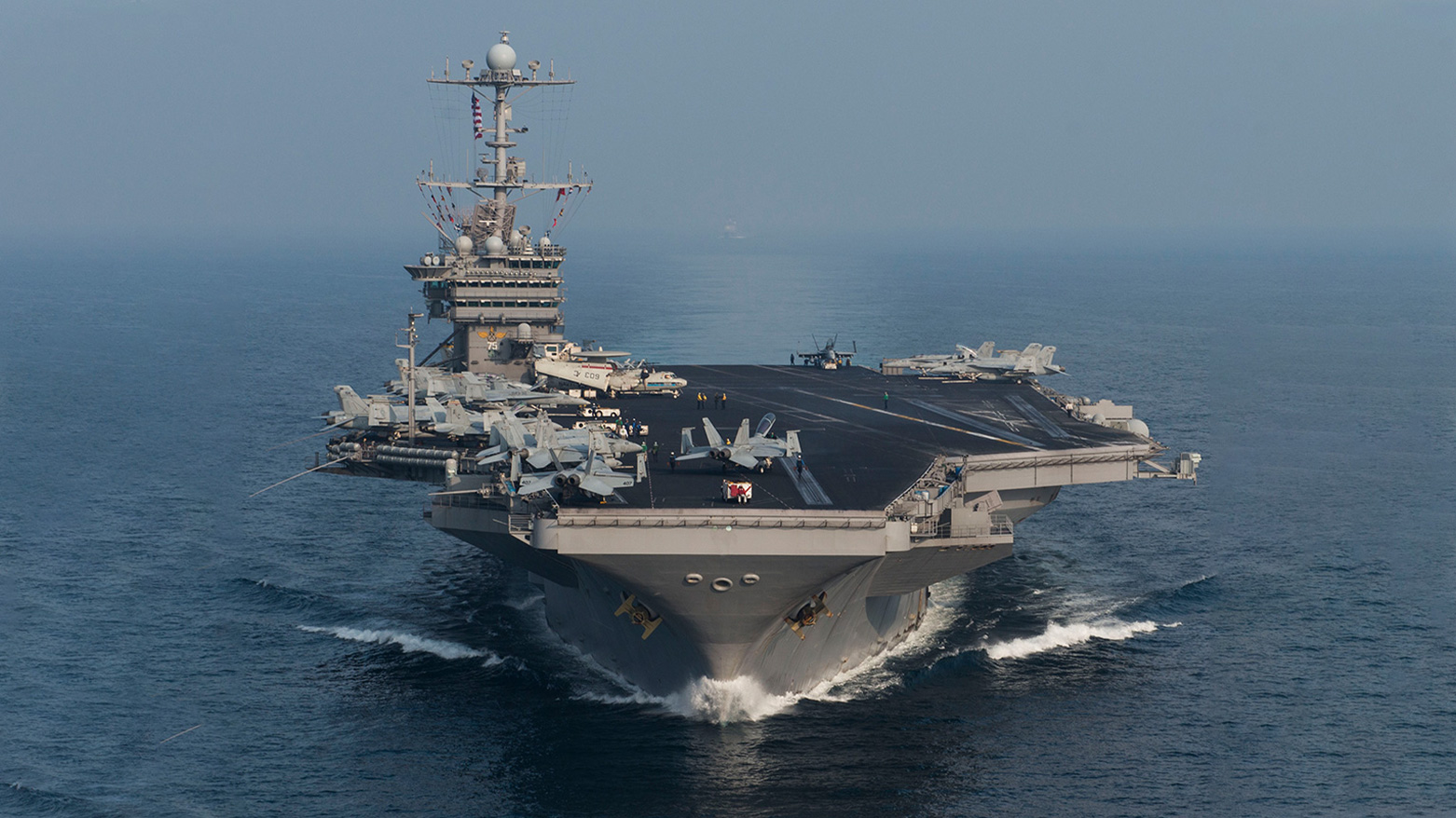24/7 War Mode: Truman, Vinson Strike Houthis
In a post on the X platform, CENTCOM stated: "24/7 operations for the USS Harry S. Truman (CVN 75) and USS Carl Vinson (CVN 70) against Iran-backed Houthis."

By Kamaran Aziz
ERBIL (Kurdistan24) — In a dramatic escalation of U.S. military operations in the Middle East, the aircraft carriers USS Carl Vinson and USS Harry S. Truman are executing around-the-clock airstrikes against Houthi rebels in Yemen, targeting key infrastructure and military assets in a bid to stem the group's maritime and regional attacks.
The United States Central Command (CENTCOM) confirmed that the two nuclear-powered aircraft carriers continue to operate 24/7 in offensive maneuvers. In a post on the X platform, CENTCOM stated: "24/7 operations for the USS Harry S. Truman (CVN 75) and USS Carl Vinson (CVN 70) against Iran-backed Houthis."
Footage released by CENTCOM showed bombs being loaded onto fighter jets aboard the carriers, followed by rapid sorties aimed at Houthi-controlled positions. These operations, which began under the directive of President Donald Trump last month, come as part of a broader U.S. strategy to disrupt Houthi attacks on regional allies and maritime trade.
24/7 operations for the USS Harry S. Truman (CVN 75) and USS Carl Vinson (CVN 70) against Iran-backed Houthis...#HouthisAreTerrorists pic.twitter.com/zFKb3oCiC4
— U.S. Central Command (@CENTCOM) April 18, 2025
On Friday, the Houthis reported their highest casualty toll to date from U.S. airstrikes, claiming that 80 people were killed and more than 100 wounded in a strike on the Ras Issa port in Yemen’s Al Hudaydah Governorate. The attack, which obliterated one of the Houthis’ critical oil terminals, was part of a targeted U.S. effort to sever funding and supply lines sustaining the Iran-aligned movement.
The day before, U.S. forces formally announced the destruction of Ras Issa port, citing the need to curb the rebels' logistical capabilities. Yemeni Houthi media, including Al-Masirah TV, quoted the region’s health department and the Yemen Red Sea Ports Corporation, reporting significant casualties and disruption to vital port operations. The port’s closure is expected to adversely affect maritime trade and oil shipments along the Red Sea.
Meanwhile, the Houthis have vowed retaliation. On Friday, Houthi spokesperson Yahya Saree declared that the group had launched missile and drone attacks targeting both U.S. aircraft carriers and Israel. Addressing a demonstration in the Yemeni capital, Sanaa, Saree claimed a ballistic missile had struck near Ben Gurion Airport in Israel and alleged joint attacks on the Truman and Carl Vinson in the Red Sea and Arabian Sea.
Since the outbreak of the Gaza war on October 7, 2023, triggered by a Hamas-led attack on southern Israel, the Houthis have expanded their operational scope, conducting repeated attacks on Israeli territory and vessels they claim are Israeli-linked. The group's self-declared solidarity with Palestinians in Gaza has translated into intensified threats to international maritime security.
The situation intensified further when, on March 15, 2025, the United States launched a formal aerial campaign to halt Houthi attacks on ships in the Red Sea and Gulf of Aden. This decision followed the Houthis' renewed threats to disrupt global shipping in response to Israel’s reimposition of its blockade on Gaza and its resumption of military operations in the enclave.
Since then, Houthi-controlled territories have been subject to near-daily American airstrikes. Despite mounting casualties, the Houthis have pledged to continue their campaign, tying their actions to what they describe as resistance against American and Israeli aggression.
As U.S. carrier groups intensify their missions, the risk of broader escalation in the region remains high, with strategic shipping routes, energy infrastructure, and regional stability all hanging in the balance.